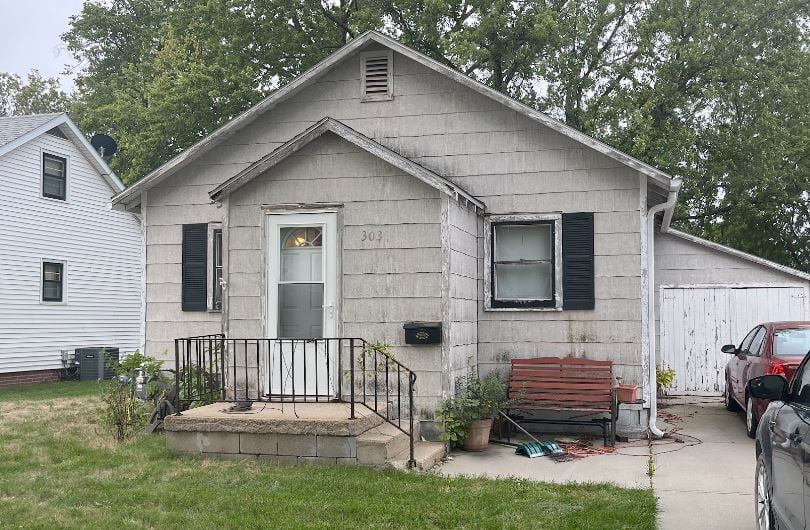Distressed properties are a growing concern nationwide.
These are homes that are either in bad condition or experiencing financial difficulties, often due to circumstances beyond the homeowners’ control.
In this post, I’ll go over the 6 main reasons why houses end up in this situation.
#1 Job Loss
One of the biggest reasons for distressed properties is a homeowner losing their job.
When someone suddenly finds themselves unemployed, they lose their main source of income to pay the mortgage and other housing expenses.

Homeowners in this position face an impossible choice.
Do they dip into whatever savings they have to try to stay current on the mortgage? Or do they have to prioritize more immediate needs like putting food on the table and keeping the lights on?
Without that regular income coming in, the situation can quickly spiral downward.
Falling behind on mortgage payments becomes almost inevitable, putting them on a path towards potential foreclosure.
For more detailed info, read: How Job Loss Cause Distressed Properties
#2 Economic Downturn
Economic downturns like recessions and slowdowns can hit families hard.
People lose their jobs, companies cut back hours, and household incomes take a big hit.
Without that steady paycheck coming in, homeowners find it harder and harder to make their mortgage payments on time.
People stuck in this situation have a tough decision. They can try to sell the house, but when lots of people are selling at the same time, it drives prices down.
This means they might have to sell their house for much less than they owe on the mortgage.
The other option is worse: losing the house to foreclosure if they can’t keep up with payments.
Faced with these choices, many people in economic downturns end up selling their homes for a loss, which adds to the number of distressed properties.
For more detailed info, read: How Economic Downturns Cause Distressed Properties
#3 Divorce
Divorce can be a major reason a house ends up distressed.
Divorcing couples might disagree on what to do with the house they shared.
One might want to keep it, but affording to buy out the other spouse can be tough, especially after paying for lawyers and other divorce costs.
If they can’t agree on a buyout, the house needs a quick sale.
This pressure often means selling the house for less than it’s worth. Fights about the price and the rush to finalize the divorce can force them to take a lower offer.
Basically, the stress and financial strain of divorce can turn a perfectly good house into a distressed property.
Also Read: Selling A House After Divorce
#4 Health Issues
Medical emergencies, chronic illnesses, or disabilities can also lead to distressed properties.
Medical bills, including deductibles, copayments, and the expenses of special equipment or changes to the home, can quickly drain a family’s finances.
Plus, if the person affected is the main earner, losing their income can make it even harder to keep up with mortgage payments.

Sadly, the situation will spiral into missed payments and then a foreclosure.
Health issues can also make it hard for homeowners to take care of their property.
Chronic illnesses or disabilities might mean they can’t do regular upkeep and fixes, which can make the property go downhill even more.
This just adds to its distress.
For more detailed info, read: How Health Issues Cause Distressed Properties
#5 Overleveraging
Some homeowners get into trouble by taking on too much debt or making unwise real estate decisions.
They might buy a house that’s way beyond their means, relying on adjustable-rate mortgages or getting into speculative investments.
But market conditions don’t always stay the same.
If something like interest rates going up or property values dropping happens, these homeowners might struggle to pay their mortgages.
And their properties could end up being labeled as distressed assets.
The effects of this can be pretty serious. It’s not just about losing the property—it can mess up their savings, credit scores, and overall financial health.
For more detailed info, read: How Overleveraging cause Distressed Properties
#6 Natural Disasters
Natural disasters like hurricanes, wildfires, and floods can also lead to distressed properties.
These disasters can cause serious damage to homes, leaving them unsafe to live in.
And the financial burden on homeowners can be overwhelming.
They have to deal with the costs of fixing up, rebuilding, and replacing what’s been lost.
Even if their homes aren’t completely destroyed, dealing with things like power outages, messed-up infrastructure can make it hard to keep up with mortgage payments.
For more detailed info, read: How Natural Disasters Cause Distressed Properties

